Q
toyota yaris vs honda city which is better?
For Malaysian car buyers, the Toyota Yaris and Honda City are both top picks in the small sedan segment, each bringing their own strengths to the table. The Yaris has built its reputation on rock-solid reliability and wallet-friendly maintenance costs. Under the hood, its 1.5L Dual VVT-i engine delivers smooth power and impressive fuel efficiency – perfect for folks who prioritize dependability and hassle-free daily commuting.
On the flip side, the City leans into a sportier character with its 1.5L i-VTEC engine and tuned-for-fun suspension setup, serving up zippier acceleration when you hit the gas. Inside, it feels more tech-forward too, boasting an 8-inch touchscreen and the handy Honda Sensing safety suite – a solid draw for younger drivers craving a bit more driving excitement and modern features.
Space-wise, the City edges ahead with slightly more legroom in the back, while the Yaris’ more compact dimensions make it a breeze to maneuver through tight city streets. Both brands have got you covered with strong after-sales networks here in Malaysia, but Toyota parts tend to be more widely available and easier on the budget.
Here’s the thing though – the small sedan market’s fiercely competitive, so you really owe it to yourself to test-drive both and see which clicks. The Yaris, for example, has a suspension that’s tuned more for a comfy ride, whereas the City puts a bigger focus on sharp, responsive handling. And let’s not forget Malaysia’s rainy weather – both have enough ground clearance to handle typical puddles, but keeping an eye on your tires’ tread depth for good water dispersion is always a smart move to stay safe out there.
Special Disclaimer: This content is published by users and does not represent the views or position of PCauto.
Related Q&A
Q
What is the sport mode on a 2019 Toyota Yaris?
The Sport Mode on the 2019 Toyota Yaris is a drive mode selection feature that primarily enhances power response and handling by adjusting the vehicle's electronic control systems. When activated, the transmission delays upshifts to keep the engine in a higher rev range, delivering quicker acceleration, while the steering might feel slightly heavier to improve road feedback. This mode works best for highway overtaking or mountain road driving, letting the 1.5L naturally aspirated engine stretch its legs a bit more. Keep in mind, though, that Sport Mode does bump up fuel consumption slightly, so it's best used for short bursts when you need that extra zip. Rivals like the Honda Jazz or Mazda 2 offer similar modes too, but each has its own tuning—some focus on linear acceleration, others on sharpening cornering stability. Running Sport Mode all the time could speed up wear on the drivetrain, so make sure to check your transmission fluid and engine condition regularly. Also, pairing it with the manual shift function can take the driving experience up another notch.
Q
How to check transmission fluid 2019 Toyota Yaris?
To check the transmission fluid in a 2019 Toyota Yaris, first make sure the vehicle is parked on level ground and start the engine to let the transmission reach operating temperature (usually after driving for 10-15 minutes). Shift through all gears briefly, then return to Park and engage the parking brake. Open the hood and locate the transmission dipstick (typically with a red or yellow handle, near the firewall). Pull out the dipstick, wipe it clean, reinsert it fully, then pull it out again to check the fluid level—it should be within the "HOT" marks. Also inspect the fluid color (normally clear red; if it's black or has a burnt smell, it needs to be changed promptly). Note that some newer Yaris models may have a sealed transmission without a dipstick; these require a professional technician with special tools to check or replace the fluid. Regularly checking the transmission fluid protects the drivetrain effectively. It's recommended to replace it every 40,000-60,000 kilometers or as specified in the maintenance manual. If you frequently drive in stop-and-go traffic, you can shorten this interval slightly. Using non-genuine fluid may cause gear-shifting hesitation or transmission damage, so Toyota's original ATF WS fluid is recommended.
Q
What engine does a 2019 Toyota Yaris have?
The 2019 Toyota Yaris offers a range of engine options across different markets, with specific configurations varying by trim level and regional specs. Common powerplants include a 1.5-liter four-cylinder naturally aspirated engine (badged 1NZ-FE or an updated variant), pushing out around 107 horsepower. This unit pairs with either a 5-speed manual or 4-speed automatic transmission. Higher-spec models might upgrade to a more efficient 1.2-liter turbocharged engine or a hybrid system. Known for reliability and fuel efficiency, this engine uses Dual VVT-i variable valve timing to optimize low-end torque and high-speed power delivery—perfect for city driving. It’s worth noting that the same-generation Yaris also spawned the GR Sport variant, packing a more potent 1.6-liter turbo engine, though these performance models are pretty rare locally. For maintenance, stick to the 10,000 km or 6-month interval for full synthetic oil changes, and regularly clean the throttle body to keep the engine running efficiently. Toyota’s factory 100,000 km warranty is a nice bonus too, helping cut down on long-term repair costs. If you’re eyeing a used Yaris, pay extra attention to the engine mount bushings and timing chain condition—these are common wear items on higher-mileage examples.
Q
Is the 2019 Yaris a Mazda?
The 2019 Yaris isn't a Mazda; it's a classic compact car from Toyota. However, it's worth noting that in some markets like North America, Toyota collaborated with Mazda to launch the Yaris iA (later renamed Mazda2 Sedan), which was based on the Mazda2 platform. But that's different from the Yaris models commonly seen locally. The 2019 Yaris sold locally was still Toyota's independently developed third-generation model (XP150), powered by a 1.5L naturally aspirated engine, focusing on affordability, practicality, and reliability. Its design and technology were all from Toyota, such as standard VSC vehicle stability control and seven airbags for safety. It's important to note that platform sharing or joint production between car brands is common in the industry. For example, Toyota also has technical partnerships with Suzuki and Subaru. Such collaborations help optimize R&D costs and integrate the strengths of each brand, but they don't change the brand ownership of the vehicles. For consumers, when choosing a car, they should focus more on the specific model's configuration, after-sales network, and their own needs rather than just fixating on brand connections.
Q
How many miles per gallon does a 2019 Toyota Yaris get?
Fuel economy for the 2019 Toyota Yaris varies by trim and transmission. According to official figures, the automatic models with the 1.5L four-cylinder engine return around 30 mpg city, 36 mpg highway, and a combined 33 mpg. The manual transmission version is slightly thirstier, checking in at about 32 mpg combined. This car has won over plenty of buyers with its budget-friendly fuel costs and solid reliability, making it a great pick for daily commutes and city driving. Beyond just sipping gas, the Yaris is known for its compact size and nimble handling—perfect for navigating busy urban areas. If you’re really looking to maximize efficiency, keeping your tires properly inflated and avoiding aggressive acceleration or hard braking can help squeeze out a few more miles per gallon. And hey, if fuel economy is your top priority, it might be worth checking out hybrid options too—they typically deliver even better mpg numbers.
Q
What is the fuel efficiency of the 2019 Toyota Yaris?
The 2019 Toyota Yaris delivers impressive fuel economy, with figures varying slightly depending on the trim and transmission. The version equipped with the 1.5-liter four-cylinder engine and CVT transmission averages around 5.6 L/100km in city driving, drops to roughly 4.7 L/100km on the highway, and posts a combined fuel consumption of about 5.1 L/100km. That kind of efficiency makes it a solid pick for both daily commutes and longer road trips without breaking the bank at the pump. It’s worth keeping in mind that fuel efficiency can be influenced by driving habits, road conditions, and vehicle maintenance. Sticking to smooth acceleration, avoiding sudden braking, and keeping up with tire and engine maintenance can all help squeeze even more miles out of each tank. As a compact car, the Yaris has long been popular for its reliable performance and low upkeep costs, and its fuel economy stacks up well against competitors in its class. If you’re really looking to maximize fuel savings and eco-friendliness, the hybrid version is worth checking out—it takes fuel efficiency to an even higher level.
Q
Is a 2019 Toyota Yaris a good car?
The 2019 Toyota Yaris is a solid all-around subcompact that’s perfect for daily commuting. It carries on Toyota’s reputation for reliability and durability, with a smooth 1.5L naturally aspirated engine that delivers great fuel economy—ideal for city driving. While the interior isn’t the roomiest, the layout is smart, and there’s enough storage space for everyday needs. The cabin materials prioritize functionality over flash, and in terms of features, you get basic safety gear like ABS and airbags, with higher trims possibly adding nice-to-haves like a backup camera. Maintenance costs are reasonable, parts are easy to come by, and it holds its value well as a used car. If you’re on a tight budget and value practicality and dependability, the 2019 Yaris is definitely worth a look. The subcompact segment is pretty competitive, though—besides the Yaris, check out rivals like the Honda Jazz or Mazda 2. They each have their own strengths, whether in handling or interior design, so it’s a good idea to test-drive a few and see which fits your needs best before deciding.
Q
Is the 2019 Yaris a reliable car?
The 2019 Yaris holds up pretty well in terms of reliability. It carries on Toyota's usual reputation for durability, with that tried-and-true 1.5L naturally aspirated engine under the hood. Maintenance costs are pretty reasonable, making it a solid pick for daily commuting. The transmission shifts nice and smoothly, and the suspension setup leans towards comfort, which works well for local road conditions. The interior space isn't exactly cavernous, but the storage solutions are practical. Fuel economy is another plus – it's pretty efficient, so you'll save a decent amount on gas over time. When it comes to keeping it reliable, make sure to keep up with regular maintenance records, especially things like transmission fluid and brake upkeep. Those little details really affect how the car holds up long-term. If you're looking at the used market, the 2019 Yaris has decent resale value, but when checking one out, pay extra attention to the electrical system and suspension components. Those can turn into problem areas if they haven't been properly maintained. Compared to its peers, it has a relatively low failure rate, but even so, holding onto complete service records after buying will help keep it running at its best.
Q
How much is a 2019 Yaris?
The 2019 Toyota Yaris typically ranges from around RM50,000 to RM70,000 in the used car market, with prices varying based on condition, mileage, trim level, and location. The higher-spec 1.5L Sport variant or hybrid models might edge closer to RM80,000. Known for its reliability and fuel efficiency, this car’s 1.5L Dual VVT-i engine paired with a CVT transmission works great for city driving. Maintenance costs are reasonably affordable too, making it a top pick for many families. When buying used, it’s smart to check service records and accident history—factory-certified used cars are your best bet for quality. Keep an eye out for warranty offers from Toyota or authorized dealers; these vehicles usually go through strict inspections and come with extra coverage. Plus, the Yaris holds its value well for a subcompact, so you won’t take a huge hit when reselling later. If you’re on a tighter budget, 2018 or 2020 models are worth considering—they’re pretty similar in features but might be more budget-friendly.
Q
How much is a 2019 Yaris worth?
The 2019 Toyota Yaris is currently fetching prices in the used car market ranging from approximately RM55,000 to RM75,000. The exact price depends on factors like condition, mileage, trim level, and service history, with higher-spec 1.5L Sport variants or hybrid models usually commanding a premium. This car is known for its reliability and fuel efficiency, making it perfect for city commuting. Its 1.3L or 1.5L engine delivers smooth power, and maintenance costs are relatively low. With a strong presence in the used car market, parts are readily available, ensuring easy follow-uprepairs. When buying, it's advisable to check for complete service records, pay special attention to the transmission and chassis condition, and consider using a third-party inspection service to verify the car's condition and avoid accident-damaged or flood-affected vehicles. Additionally, keep an eye on the expiry dates of road tax and insurance, as these can impact the final transaction price.
Popular Cars
Model Year
Car Compare
Car Photo
Latest Q&A
Q
Do I need an alignment after rotation?
Whether a four-wheel alignment is needed after tire replacement depends on the actual condition of the vehicle. If only the tires are replaced and the vehicle has been driving normally without deviation, steering wheel vibration, or uneven tire wear, a four-wheel alignment is usually not required immediately, but wheel balancing must be performed to ensure stability when the wheels rotate at high speeds. However, if problems such as directional deviation, reduced steering precision, misaligned steering wheel, or abnormal tire wear (e.g., one-sided wear) occur after tire replacement, four-wheel alignment is necessary to adjust the geometric parameters of the suspension system (including caster angle, front wheel camber, etc.), thereby restoring the vehicle's straight-line driving stability and uniform tire contact with the road. Moreover, if chassis component repairs (such as suspension or steering system) are involved during tire replacement or the vehicle has been in a collision, four-wheel alignment becomes an essential step, as it can effectively reduce abnormal tire wear, improve handling safety, and lower fuel consumption. It is recommended to check the alignment parameters regularly every 20,000 kilometers or once a year. If you frequently encounter rough road conditions (such as curbs or speed bumps) during daily driving, the inspection interval should be shortened accordingly. Professional technicians can measure the data using specialized equipment and compare it with the manufacturer's specifications to determine whether adjustments are needed.
Q
Is it okay to rotate tires every 10,000 km?
Rotating tires every 10,000 kilometers is a reasonable and necessary maintenance measure, especially for fuel vehicles, as this frequency can effectively balance the wear difference between front and rear tires. Tire rotation involves regularly adjusting the installation positions of tires (e.g., moving front tires to the rear), which ensures more uniform wear across all tires, thereby extending the overall service life by approximately 20%-30%. For fuel vehicles, it is recommended to rotate tires every 10,000 kilometers, while for new energy vehicles, due to their greater weight and stronger torque output, the interval should be reduced to 8,000 kilometers. During rotation, the cross-rotation method should be employed (i.e., moving front tires to the opposite rear positions), and tire pressure should be checked simultaneously to ensure it meets the specified standards (2.3-2.5 bar for fuel vehicles, with an additional 0.2 bar for new energy vehicles). It is important to note that if a tire exhibits abnormal unilateral wear, bulges, or tread depth below 1.6 millimeters, simple rotation is not recommended and the tire should be replaced immediately. Regular monthly tire pressure checks and removal of debris from treads can further enhance tire performance and safety.
Q
What happens if you don't rotate tires?
If tire rotation is not performed regularly, it will lead to uneven tire wear, which in turn causes multiple problems. For front-wheel-drive vehicles, the front tires bear both driving and steering functions, so their wear rate is significantly faster than that of the rear tires; for rear-wheel-drive vehicles, since power is concentrated on the rear tires, the rear tires wear more noticeably. Long-term failure to rotate tires will shorten the overall tire life by 20%-40%—the front tires may be scrapped prematurely while the rear tires remain relatively new, resulting in resource waste. In addition, uneven wear reduces traction, particularly on wet surfaces, which can easily lead to skidding or a 10%-15% increase in braking distance, thereby elevating driving risks. Irregular wear also exacerbates tire noise and increases fuel consumption by 0.3-0.8 liters per 100 kilometers due to uneven rolling resistance. It is recommended to rotate tires every 10,000 to 15,000 kilometers. For front-wheel-drive vehicles, the cross-rotation method should be employed (left front to right rear, right front to left rear), while for rear-wheel-drive vehicles, the rear tires need to be crossed to the front. After rotation, tire pressure (the standard value typically ranges from 2.3 to 2.6 bar) should be verified and wheel balancing performed to prevent high-speed vibrations. If the tires exhibit irregular wear patterns or the tread depth falls below 1.6 mm, they should be replaced immediately. Regular tire rotation not only prolongs tire lifespan but also enhances fuel efficiency and driving safety. The cost of a single rotation is approximately 50 to 100 ringgit, substantially lower than the expense of premature tire replacement.
Q
Is it good to rotate car tires?
Tire rotation is an important maintenance measure to ensure even tire wear and extend service life. It is recommended to perform it every 5,000 to 10,000 kilometers or when uneven wear is detected. For front-wheel drive vehicles, the front tires wear faster as they handle steering and braking tasks, so they need to be cross-rotated with the rear tires (left front to right rear, right front to left rear). For rear-wheel drive vehicles, the rear tires should be diagonally swapped with the front tires to balance the wear of the drive wheels. If the tires have a directional tread pattern or asymmetric design, the rotation direction must be maintained, and only front-to-rear swaps on the same side are allowed to avoid affecting handling on wet and slippery roads. After rotation, the tire pressure should be adjusted to the standard for the corresponding wheel position, and it is recommended to perform dynamic balancing and four-wheel alignment simultaneously to optimize driving stability. Note that snow tires or studded tires cannot be rotated, and tires with different front and rear sizes can only be swapped left and right. Regular rotation can reduce abnormal wear (such as uneven wear or wavy patterns), improve grip and driving quietness, reduce safety hazards caused by tire problems, and save replacement costs in the long run. The specific operation should be based on the vehicle manual. If there is a lack of guidance, the cross-rotation method for bias-ply tires or the same-side rotation method for radial tires can be prioritized.
Q
How often should car tyres be rotated?
The replacement cycle of car tires should be determined by comprehensively considering factors such as service life, mileage, driving habits, and environmental conditions. Generally, it is recommended to replace them every 3 to 5 years or after 60,000 to 80,000 kilometers of driving, whichever comes first. As rubber products, tires deteriorate over time. Even if the mileage threshold hasn't been reached, immediate replacement is necessary when sidewall cracks, bulges appear, or tread depth falls below 1.6 mm (verifiable with a coin test) to ensure safety. Due to their heavier weight and stronger torque output, new energy vehicles experience accelerated tire wear. It is advisable to shorten the inspection interval to every six months, with urban commuting replacement mileage typically ranging from 42,000 to 56,000 kilometers. Regular tire rotation helps distribute wear evenly. For front-wheel-drive vehicles, front-to-rear rotation every 8,000 to 10,000 kilometers is recommended, while for new energy vehicles with higher front axle loads, this interval can be reduced to 6,000 to 8,000 kilometers. Additionally, maintaining cold tire pressure at 2.3 to 2.5 bar (add 0.2 bar for new energy vehicles) and avoiding aggressive maneuvers like rapid acceleration and hard braking can extend tire lifespan by 15% to 20%. Tires exceeding 6 years from their production date (identifiable via the DOT code on the sidewall) should be replaced regardless of apparent condition.
View MoreRelated News
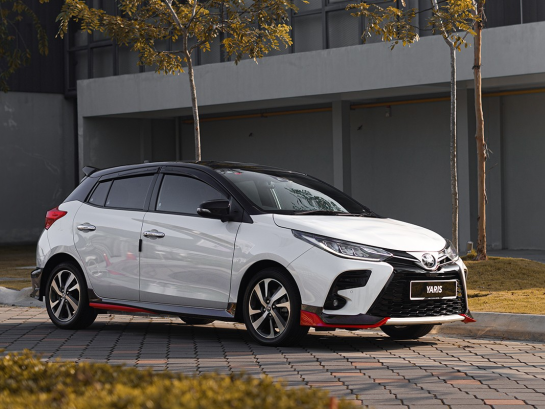
Toyota Yaris Interior Design Revealed: The Ideal Choice for Daily Commutes
AshleyJul 17, 2025
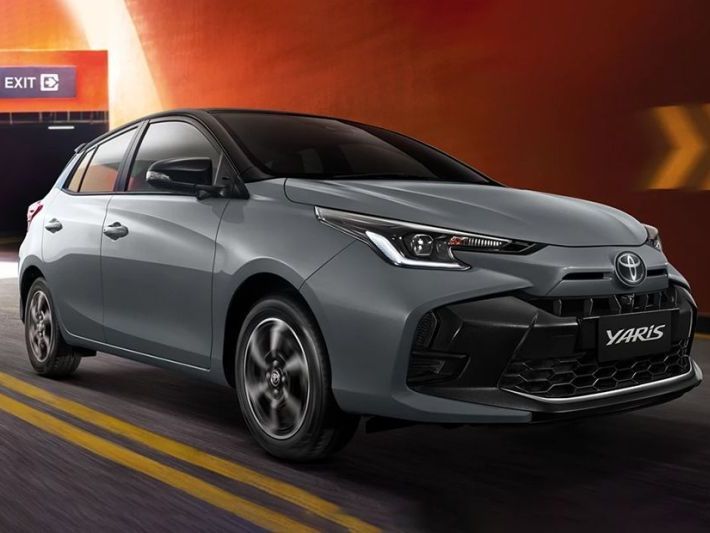
Highlights of the Toyota Yaris: The Perfect Fusion of Outstanding Power and Comfortable Handling
MichaelApr 16, 2025
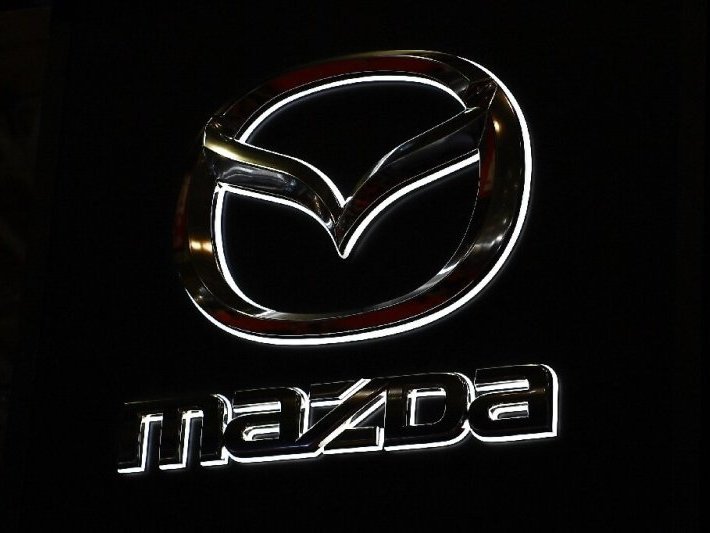
Mazda Plans to Launch CX-20 in Southeast Asia to Compete with Toyota Yaris Cross
RobertMar 20, 2025
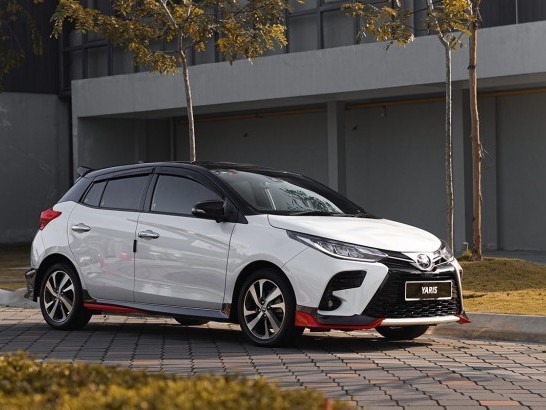
Is my Yaris fuel consumption normal? What should the fuel consumption per 100km be?
MichaelFeb 28, 2025

Toyota takes the crown at the second stop of the 2025 WRC, the GR Yaris helps Toyota take the top of the points table
JamesFeb 19, 2025
View More


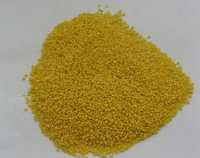









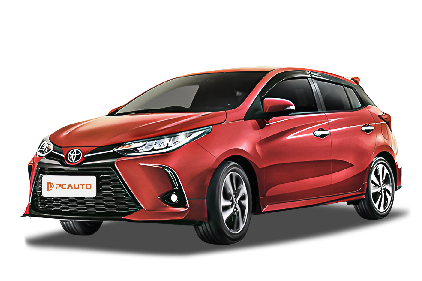





Pros
Cons